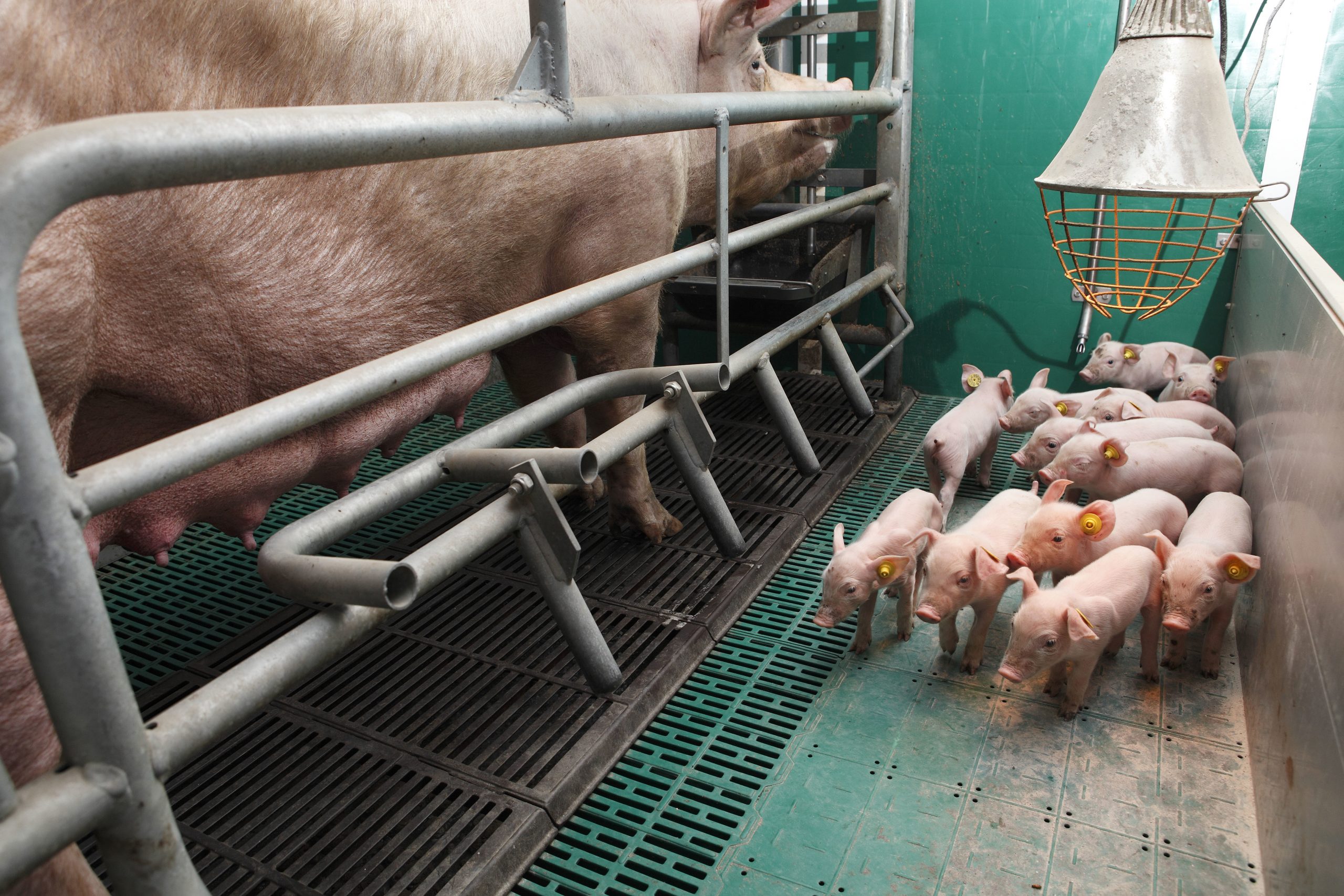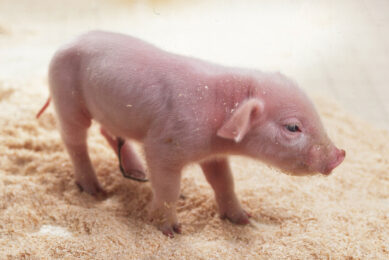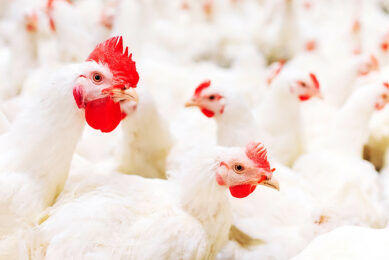Heavier piglets by enriching sow diets

Piglet performance can be increased through good management of the sow, whereof feed is an important factor. Enriching the gestation and lactation diet of sows with alpha-monoglycerides has led to higher weaning weights of their offspring.
In the beginning of their lives, piglets are fully dependent on their mother’s milk. Lactating sows struggle to deliver nutrients to the piglets and at the same time fulfill their own body requirements, when the consumption and absorption of nutrients is not sufficient. Therefore, a healthy digestive tract is needed to promote an efficient utilisation of feed. Moreover, since about 70% of the immune system is located in the gastrointestinal tract (GIT), it is of the utmost importance to stimulate optimal gut health.
Farmers are continuously seeking new opportunities to improve the health and performance of sows and their piglets. One of these possibilities is to include specific feed additives, such as alpha-monoglycerides. FRA Gut Balance is the key to overcome bacterial challenges from both Gram-negative and Gram-positive bacteria. This approach contains alpha-monoglycerides of both short-chain and medium-chain fatty acids (SCFA & MCFA). During times of low pathogenic pressure, this strategy has shown to improve general health and performance.
Improving performances suckling piglets through the sow diet
The effect of the product was shown in a trial with in total 40 sows, divided over two treatment groups of 20 sows each. The control group did not receive any additive through the feed, whereas the treatment group received 2kg of the product per ton of feed from confinement (one week before farrowing) until the moment of weaning at 26 days. The average body weight of the live born piglets was already slightly higher in the treatment group. Weaning weight was more than 1kg per piglet higher in the treatment group, see Table 1.
As a rule of thumb, an increase of 1kg in body weight of weaned piglets will result in 3kg higher body weight at the end of the rearing period, which is of huge economic importance. In the first 24 hours after birth 11 piglets died in the control group and 6 piglets in the treatment group. This is a reduction of 45%.
Strong anti-microbial effect
The improved weaning weight of the piglets is established by feeding sows alpha-monoglycerides during gestation and lactation. First, alpha-monoglycerides have a strong anti-microbial effect reducing pathogen pressure in the sow’s GIT. This improves sows’ health and performances and furthermore implies a lower risk of vertical transmission of pathogens to piglets. Second, alpha-monoglycerides of butyric acid are known to stimulate the development of the intestine. A better and intact epithelial barrier in the intestine will help the sow to absorb more nutrients from the diet for body maintenance and milk production.
Third, there are indications that alpha-monoglycerides of MCFA can be absorbed via the lymphatic system. When absorbed they will subsequently end up in the blood stream, travelling through the sow and some may end up in the milk promoting piglet health. In conclusion, feeding a mixture of alpha-monoglycerides to the sow one week before farrowing and during lactation will help to give piglets a better start in life.
This article was sponsored by Framelco
Author info: Ellen Damen, Framelco, The Netherlands











